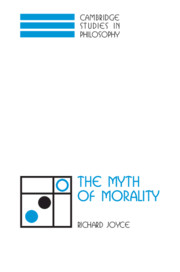4 - The relativity of reasons
Published online by Cambridge University Press: 22 September 2009
Summary
THE RATIONALIST'S DILEMMA
Any moral rationalist faces a metaethical dilemma. One horn is the alienation of an agent from her normative reasons, the other horn is moral relativism.
“Moral rationalism” I understand to center on the thesis that moral reasons are a subset of normative reasons, such that moral failing is, necessarily, rational failing. This thesis will not count as sufficient for being a rationalist, for consider if normative reasons turn out – as I think they do – to be in some substantive manner agent-relative. We might still link these practical reasons to moral reasons, to the conclusion that moral reasons are relative to agents (which is close to the conclusion that moral imperatives are hypothetical). This is the basic structure of Gilbert Harman's version of moral relativism (to be discussed later in this chapter), but it would be very misleading if Harman turned out to be a moral rationalist. In response to this, let us add to the above criterion for rationalism two further theses: that the imperatives of practical rationality are categorical imperatives; and that there are some true imperatives of practical rationality. The last condition is needed just to cover the unlikely case of an argument linking normative reasons to moral reasons, asserted in conjunction with a denial that there are any true normative reasons claims. (The latter denial is something I attributed to Hume in §3.1) “Moral rationalism” had better not permissibly denote a moral error theory!
Let us consider the first horn of the rationalist's dilemma.
- Type
- Chapter
- Information
- The Myth of Morality , pp. 80 - 105Publisher: Cambridge University PressPrint publication year: 2001



